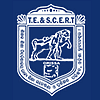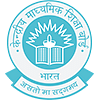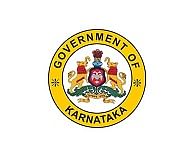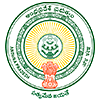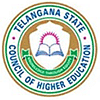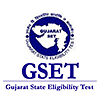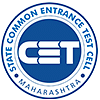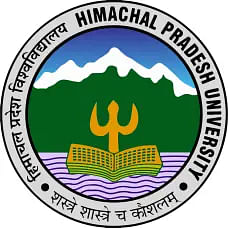
Table of Contents
SCERT Odisha exam dates 2023 will be announced soon on the official website. More than 80 institutes conduct admissions for the exams conducted by SCERT Odisha and over one lakh individuals apply for the exams they conduct in a year. The exams conducted are for individuals who want a degree in teacher training such as B.Ed, M.Ed, D.El.Ed., M.Phil and B.Ped.
About SCERT Odisha
The State Council of Education, Research, and Training act as a part of the NCERT whose important activities are: the formation of the District Institute of Education and Training and its management, improvement of the syllabus, vocational education, and conducting short courses for teachers.
SCERT helps in bringing change in school education, non-formal education, and teacher education. It helps in Secondary Training Schools and Elementary Training Schools. It creates the curriculum, instruction material, and textbooks for education institutions and teachers of preschool and elementary schools. It also conducts public examinations at the end of Class 3 and Class 5 to control the quality of education and select candidates for scholarships.
SCERT Odisha conducts entrance exams for B.Ed, M.Ed, D.El.Ed., M.Phil, and B.Ped courses that are related to teacher training.
| Exam Name | State Council of Education, Research and Training, Odisha |
| Abbreviation | SCERT Odisha |
| Exam Level | State-Level |
| Exam Mode | Online |
| Conducting Body | Directorate of TE and SCERT, Odisha, Bhubaneshwar |
SCERT Odisha 2023 Exam Date
SCERT Odisha exam dates 2023 will be announced soon on the official website. The SCERT, Odisha exam is a state-level exam held for those candidates who wish to be teachers by applying for courses related to teacher training. The official website shows the dates of the exam. Candidates must frequently check the official website to not miss out on filling out the registration form. The tentative dates for the exams are given below.
| Events | Dates |
|---|---|
| Start Date of filling the Application Form | Sep 2023 (Tentative) |
| Last Date of filling the Application Form | Oct 2023 (Tentative) |
| Admit Card Release Date | Nov 2023 (Tentative) |
| Exam Date | Nov 2023 (Tentative) |
| Result Date | Dec 2023 (Tentative) |
SCERT Odisha 2023 Eligibility Criteria
The eligibility criteria are decided by the Directorate of TE and SCERT, Odisha to make sure the candidates who apply for the courses are well qualified and have the skill and knowledge it requires to take any of the teacher training courses. The SCERT Odisha Eligibility Criteria are extremely essential for a candidate to go through before filling the application form. If a candidate does not meet the eligibility criteria after filling the application form or after appearing for the exam then his/her candidature shall be cancelled. The criteria are as follows for each course.
Bachelors in Education (B.Ed.):
- Candidates must have completed Graduation or Post- Graduation with a minimum of 50%.
- The candidates must have passed Graduation with at least 2 subjects of Minimum 200 marks each.
OR
- Candidates who have completed their B.E/ B.Tech must have a minimum of 55% aggregate marks. In the case of SC/ST/SEBC/ PH candidates must have a minimum of 50%.
- All B. Tech candidates will be considered under the PCM category.
Note: candidates who are from the science background that is, who are Science Graduates (with at least 2 subjects with a minimum of 200 marks in each) must have studied at school level physics, Chemistry, Zoology, Biotechnology, Computer Science and Geography.
General Category: Candidates must be 28 years of age.
SC/ST/ EBC/ Women: Candidates must be 33 years of age.
Physically Handicapped: Candidates must be 38 years of age.
Diploma in Elementary Education (D.El. Ed.):
- Candidates must have passed Higher Secondary School or its equivalent in any of the stream that is, Arts/Science/Commerce with at least 50% marks. In the case of SC/ST/EBC/PH, the minimum marks required are 45%.
- Candidates must have passed Odia as a medium of language up to Higher Secondary School level or 12th standard or have passed Odia as a single subject exam which is conducted by BSE, Odisha or must have passed Higher Secondary School conducted by BSE, Odisha in Odia with Modern Indian Language any other than Odia.
General Category: Candidates must be 28 years of age.
SC/ST/ EBC/ Women: Candidates must be 33 years of age.
Physically Handicapped: Candidates must be 38 years of age.
Bachelor in Hindi Education (B.Ed.):
- Candidates must have passed or are in the final year of the B.Com/ B.A/ B.Sc exam from a recognized university with a minimum of 50% marks. Such a university must have Hindi as a subject. In the case of SC/ST/ BC/ PH category, the minimum marks required are 45%.
- Candidates must have passed Odia as a medium of language up to Higher Secondary School level or 12th standard or have passed Odia as a single subject exam which is conducted by BSE, Odisha or must have passed Higher Secondary School conducted by BSE, Odisha in Odia with Modern Indian language any other, than Odia.
OR
- Candidates must have passed or are in the final year of B.Com/ B.A/ B.Sc exam from a recognized university with a minimum of 50% marks and such institute does have Hindi as a subject then such recognized institute must be Rashtra Bhasa Ratna from Rastra Bhasa Prachar Samiti. Wardha/ Shastri from Odisha Rastra Bhasa Parishad, Puri/Snatak.
General Category: Candidates must be 28 years of age.
SC/ST/ EBC/ Women: Candidates must be 33 years of age.
Physically Handicapped: Candidates must be 38 years of age.
Bachelors in Physical Education (B.P.Ed.):
- Candidates must have a Bachelor’s Degree with a minimum of 50% marks in any discipline. Candidates must have also participated in college/ zonal/ district/ school competition in sports and games that are recognized by AIU/ IOA/ SGFI/ Government of India.
OR
- Candidates must have a Bachelor’s Degree in Physical Education with a minimum of 45% marks.
OR
- Candidates must have a Bachelor’s Degree in Physical Education with a minimum of 45% marks and must have studied Physical Education as a compulsory subject or as an Elective.
OR
- Candidates must have a Bachelor’s Degree with a minimum of 45% marks in any discipline. Candidates must have also participated in National/ Inter-collegiate/ Inter-Zonal/ School competition in sports or must have scored the place of 1st, 2nd, or 3rd in these competitions and these games must be recognized by AIU/ IOA/ SGFI/ Government of India.
- Candidates must have a Bachelor’s Degree with a minimum of 45% marks in any discipline. Candidates must have also participated in international competition in sports or must have scored the place of 1st, 2nd, or 3rd in these competitions, and these games must be recognized by AIU/ IOA/ SGFI/ Government of India.
- Candidates must be Graduates with a minimum of 45% marks with at least 3 years of teaching.
General Category: Candidates must be 28 years of age.
SC/ST/ EBC/ Women: Candidates must be 33 years of age.
Physically Handicapped: Candidates must be 38 years of age.
Master’s in Education (M.Ed.):
- Candidates must have completed Bachelors in Education with a minimum of 50% marks.
OR
- Candidates must have completed, Bachelor of Art and Bachelors of Education with a minimum of 50% marks.
OR
- Candidate must be a graduate in Arts or Science along with Diploma in Elementary Education degree with a minimum of 50% marks and the case of SC/ST/BC/PH candidates, the minimum marks required at 45%.
- Candidates must have passed Odia as a medium of language up to Higher Secondary School level or 12th standard or have passed Odia as a single subject exam which is conducted by BSE, Odisha or must have passed Higher Secondary School conducted by BSE, Odisha in Odia with Modern Indian language any other, than Odia.
Age Criteria: No age limit
Master's in Philosophy (M.Phil.):
- Candidates must have passed Master’s in Education with a minimum of 50% marks from any recognized institute.
- Candidates must have passed Odia as a medium of language up to Higher Secondary School level or 12th standard or have passed Odia as a single subject exam which is conducted by BSE, Odisha or must have passed Higher Secondary School conducted by BSE, Odisha in Odia with modern Indian language any other, than Odia.
Age Criteria: No age limit.
SCERT Odisha 2023 Application Form
The SCERT Odisha application form 2023 will be released on the official website. The SCERT Odisha 2023 application form will be available in the online form only. Candidates must fill the form from the official website. The application form is important to fill because this shows a candidate has registered for the exam. Candidate must also pay the amount towards the application form. If the candidate fails to pay the amount the candidate will not be issued a hall ticket and will not be allowed to write the exam. The candidates need a unique email id and a phone number since the registration will be through the OTP Process.
- Step 1: Register by using email id and phone number. Candidates will receive an OTP on the Email id and phone number which they must use to fill in the box on the website.
- Step 2: Use the mobile number and password to log in to fill the application form.
- Step 3: After filling the Registration form applicants must submit the form.
- Step4: After submitting applicants will be taken to the Payment page where they must make payment concerning the application money
- Step 5: Download the Receipt and Application form for future reference.
SCERT Odisha Application Fee:
General Category: Candidates must pay Rs. 500 towards registration.
SC/ST/BC/Physically Handicapped: Candidates must pay Rs. 300 towards registration.
SCERT Odisha 2023 Admit Card
The SCERT Odisha admit card will be released online after the registration has been completed by the candidate. The hall ticket is an essential document as it allows candidates to appear for the exam. It must be carried by them to the examination hall. If a candidate does not carry the admit card to the exam, she/he shall not be allowed to appear for the exam.
To download the admit card candidate must visit the official website and enter their Password and mobile number. Click on “Download Admit Card” and print the admit card. Candidates must also carry any form of government id proof. It could be a Passport, Aadhaar card, Voters Id.
SCERT Odisha 2023 Exam Pattern
The exam pattern is set by the Directorate of TE and SCERT, Odisha, Bhubaneshwar keeping in mind the kind of expertise a teacher would require for pursuing the course. The exam pattern is given so that candidates can prepare accordingly and get a fair idea as to what would be asked and the weightage for each section or subject. The paper pattern for each course differs and is given as below.
Diploma in Elementary Education (General, Urdu, Telugu, Santhali)
| Total Marks | 90 marks |
|---|---|
| Number of Sections | 2 |
| Section 1 marks | 30 marks |
| Section 2 marks | 60 marks |
| Marking scheme | +1 for every right answer. No Negative marks |
| Mode of conducting exam | Online exam |
| Exam Type | MCQ |
| Duration | 1 hour 30 minutes |
Section 1 (30 marks):
| Subjects | Number of Questions | Marks |
|---|---|---|
| Language (English) | 20 | 10 |
| Education and General Awareness | 5 | 5 |
| Reasoning | 5 | 5 |
| Teaching Aptitude | 10 | 10 |
| TOTAL | 30 | 30 |
Section 2 (60 marks):
| Subjects | Number of Questions | Marks |
|---|---|---|
| Odia/ Telugu/ Urdu/ Olchiki | 15 | 15 |
| Mathematics | 15 | 15 |
| Social Science | 15 | 15 |
| Science | 15 | 15 |
| TOTAL | 60 | 60 |
SCERT Odisha B.Ed Exam Pattern:
| Total Marks | 90 marks |
| Number of Sections | 2 |
| Section 1 | 30 marks |
| Section 2 | 60 marks |
| Marking scheme | +1 for every right answer. No Negative marks |
| Exam Type | MCQ |
| Mode of conducting exam | Online exam |
| Duration | 1 hour 30 minutes |
Section 1 (30 marks) for both Arts and Science
| Subjects | Number of Questions | Marks |
|---|---|---|
| Language (English) | 20 | 10 |
| Education and General Awareness | 5 | 5 |
| Reasoning | 5 | 5 |
| Teaching Aptitude | 10 | 10 |
| TOTAL | 30 | 30 |
Section 2 (60 marks)
This Section is divided into 2 sub-sections; Section A and Section B. Section A is Arts Group and Section B is Science Group. Candidates must select which section they would appear for and only appear for questions in that section. Candidates must answer ALL the questions under that section.
Section A: Arts Group
| Subject | Number of Questions | Marks |
|---|---|---|
| General English | 15 | 15 |
| Odia | 10 | 10 |
| History and Political Science | 20 | 20 |
| Geography | 15 | 15 |
| TOTAL | 60 | 60 |
Section B: Science Group
| Subjects | Number of Questions | Marks |
|---|---|---|
| Physical Science | 20 | 20 |
| Bio-Science | 20 | 20 |
| Mathematics | 20 | 20 |
| TOTAL | 60 | 60 |
SCERT Odisha B.H.Ed Exam Pattern
| Total Marks | 90 marks |
| Number of Sections | 2 |
| Section 1 marks | 30 marks |
| Section 2 marks | 60 marks |
| Marking scheme | +1 for every right answer. No Negative marks |
| Mode of conducting exam | Online exam |
| Exam Type | MCQ |
| Duration | 1 hour 30 minutes |
Section 1 (30 marks)
| Subjects | Number of Questions | Marks |
| Language (English) | 20 | 10 |
| Education and General Awareness | 5 | 5 |
| Reasoning | 5 | 5 |
| Teaching Aptitude | 10 | 10 |
| TOTAL | 30 | 30 |
Section 2 (60 marks)
| Subjects | Number of Questions | Marks |
|---|---|---|
| Hindi | 40 | 40 |
| Odia | 20 | 20 |
| TOTAL | 60 | 60 |
SCERT Odisha B.P.Ed Exam Pattern
| Total Marks | 90 marks |
| Number of Sections | 2 |
| Section 1 | 30 marks |
| Section 2 | 60 marks |
| Marking scheme | +1 for every right answer. No Negative marks |
| Mode of conducting exam | Online exam |
| Exam Type | MCQ |
| Duration | 1 hour 30 minutes |
Section 1 (30 marks)
| Subjects | Number of Questions | Marks |
|---|---|---|
| Language (English) | 20 | 10 |
| Education and General Awareness | 5 | 5 |
| Reasoning | 5 | 5 |
| Teaching Aptitude | 10 | 10 |
| TOTAL | 30 | 30 |
Section 2 (60 marks)
| Subjects | Number of Questions | Marks |
|---|---|---|
| Current Affairs on Sports and Games | 20 | 20 |
| Physiology and Hygiene | 20 | 20 |
| Common Knowledge about Major Games | 20 | 20 |
| TOTAL | 60 | 60 |
SCERT Odisha M.Ed Exam Pattern
| Subjects | Number of Questions | Marks |
|---|---|---|
| Basics of Education | 18 | 18 |
| Understanding the Learner and Learning Process | 18 | 18 |
| Curriculum and Curriculum transaction | 18 | 18 |
| Contemporary issues in school Education | 18 | 18 |
| Assessing the learner; Planning and Management of school | 18 | 18 |
| TOTAL | 90 | 90 |
SCERT Odisha M.Phil Exam Pattern
| Subjects | Number of Questions | Marks |
|---|---|---|
| Education as a discipline and Process of Education | 18 | 18 |
| Learner and Learning Process | 18 | 18 |
| Educational Research, Statistics, and Assessment | 18 | 18 |
| Teacher Education at Elementary and Secondary Level | 18 | 18 |
| Education in Developmental Perspective | 18 | 18 |
| TOTAL | 90 | 90 |
SCERT Odisha 2023 Syllabus
The syllabus is drawn up in a manner to test the candidates if they have the basic knowledge and understanding of the subjects and their foundation is strong and clear. The syllabus is made clear so that candidates can prepare well for the exam and score better. It is put up on the official website so candidates can find it easily.
It gives an idea to applicants about what is going to be asked and how strong must they be in the subjects of a particular course they are opting for. Each course has a different syllabus so candidates must take due care before starting their preparation. The syllabus is as below.
Diploma in Elementary Education (General, Urdu, Telugu, Santhali) Syllabus
Section 1:
Language (English)
- Comprehension, Vocabulary and Usage
Education & General Awareness
- Everyday science
- PThe politicalsystem and its evolution
- General Knowledge
- Educational Commissions & Committees
- Any Educational Initiatives made in recent times
Reasoning
- Logical Reasoning
- Analytical Reasoning
Teaching Aptitude
- Problem Solving in the context of education
- Managing classrooms
- Classroom learning
- Issues related to Learner and learning
- Goals of education
- In the management of education, the roles played by various agencies and organization
- Issues concerning teaching-learning strategies.
Section 2:
Odia/Telugu/ Urdu/Santhali
- Dhwani and Sabda
- Parts of speech (Noun, Adjective, verb)
- Derivation of words
- Formation of words (prefix and suffix), (Synonyms and Antonyms)
- Idioms
Mathematics
- HCF and LCM
- Square and square root
- Percentage and its application (profit and loss, simple and compound interest)
- Ratio and Proportion
- Linear algebraic equations and their solutions
- Set- its elements, operations on sets
- Basic Geometrical Concepts
- The geometry of Triangles, quadrilaterals and circles
Social Science
- Stone age, Vedic age, medieval age
- Stages of the freedom movement in India
- Indian Constitution and its features
- Systems in India- Local Self Government, State Government, Central Government
- Earth and its structure, Latitude and longitude
- Climate and Atmosphere
- Conservation of Natural Resources and Environmental preservation and protection
Science
- Different states and characteristics of matter
- Chemical reaction
- Force, energy and motion
- Plant cells and animal cells
- Structure and adaption in plants
- Microorganisms
SCERT Odisha B.Ed Syllabus
Section 1:
Language (English)
- Comprehension, Vocabulary and Usage
Education & General Awareness
- Everyday science
- The political system and its evolution
- General Knowledge
- Educational Commissions & Committees
- Any Educational Initiatives made in recent times
- Educational policies
- Agencies working for education
Reasoning
- Logical Reasoning
- Analytical Reasoning
Teaching Aptitude
- Problem Solving in the context of education
- Managing classrooms
- Classroom learning
- Issues related to Learner and learning
- Goals of education
- In the management of education, the roles played by various agencies and organization
- Issues concerning teaching-learning strategies.
Section 2:
Section A: Arts Group
English
- Comprehension – Unseen passage
- Word formation, Derivation, Antonyms and Synonyms
- Spelling and punctuation
- Grammar (Parts of speech, tenses, change of voice, Direct and Indirect speech and transformation of sentences)
Odia
- Comprehension – Unseen passage
- Odia Dhwani, Odia Vocabulary – Word formation and syntax Spelling and Punctuation
- Grammar (Karaka, Bibhakti, Samasa)
History and Political Science
- Rise of the British Rule in India
- Socio-religious Movements in the 19th Century
- India’s struggle for freedom
- French Revolution, 1st World War and 2nd World War
- Features of The Indian constitution, Fundamental Rights
- Functions of Legislative Assembly, Parliament, High Court and Supreme Court
Geography
- Latitude and Longitude
- Physical division of India
- Natural Resources
- Social and economic resources
- Conservation of Forest and Wild Life
Section B: Science Group
Physical Science
- Atomic structure – Atoms and molecules, classification of elements
- Chemical reactions and equations
- Motion – Laws of motion, the concept of work, energy pressure and their measurement
- Electricity and magnetism: - Electric Circuit, Potential difference, magnetic Field, lines of force, electromagnetic induction
- Heat, Light and Sound
Mathematics
- Number System, Ratio and Proportion
- Set theory, relations and functions
- Linear, Simultaneous and quadratic equations, polynomials
- Theory of Indices, Logarithm and Antilogarithm
- Trigonometric Ratios and Indices, Problems on height and distance
- Basic Geometrical Concepts and Geometry of plane figures
Biological Science
- Cell: Structure, Components and Functions
- Diversities in plants and animals
- Natural resources
- Eco-system, the flow of energy, Bio-Geo Chemical cycle in nature, environmental degradation and pollution
- Physiological function in plants and animals related to Nutrition, Respiration, Excretion, and Reproduction.
SCERT Odisha Bachelors’ in Hindi Education Syllabus
Section 1:
Language (English)
- Comprehension, Vocabulary and Usage
Education & General Awareness
- Everyday science
- The political system and its evolution
- General Knowledge
- Educational Commissions & Committees
- Any Educational Initiatives made in recent times
- Educational policies
- Agencies working for education
Reasoning
- Logical Reasoning
- Analytical Reasoning
Teaching Aptitude
- Problem Solving in the context of education
- Managing classrooms
- Classroom learning
- Issues related to Learner and learning
- Goals of education
- In the management of education, the roles played by various agencies and organization
- Issues concerning teaching-learning strategies
Section 2:
Hindi
- History of Hindi Literature (10 questions of one mark each)
- Samanya parichaya: Kal bibhajan
- Mukhya Pravrittian
- Pramukh Kavi Aur Sahityakar tatha unki mukhya Kritiyan
Hindi Literature (10 questions of one mark each)
- Samanya Parichaya:
- Kabir, Sur, Tulasi, Maithilisaran, Prasad, Pant, Nirala, Dinkar, Bacchan, Subhadrakumari, Nagarjun, Agneya .
- Premachand, Mahadevi, Mannubhandari, Harishankar Parasai, Ramachandra Shukla, Hazariprasad Dwivedi Comprehension
Comprehension (Five questions one mark each)
- Unknown passage
Grammar (25 questions of one mark each)
- Dhwani and Varnamala
- Different kinds of words (paryaya bachi, sandhisamas, anek sabdonke liye ek, villom, anekarthi, upasarga, pratyaya etc.)
- Nouns – Number, gender, Adjectives
- Karak, Bibhakti, Kriya ke kal, mukhya kriyayen, kriya vishesan
- Popular muhaware, vakya
Odia
- Comprehension -Unseen passage
- Odia Dhwani, Odia Vocabulary -Word formation and syntax Spelling and Punctuation
- Grammar (Karaka, Bibhakti, Samasa)
SCERT Odisha Bachelors in Physical Education Syllabus
Section 1:
Language (English)
- Comprehension, Vocabulary and Usage
Education & General Awareness
- Everyday science
- The political system and its evolution
- General Knowledge
- Educational Commissions & Committees
- Any Educational Initiatives made in recent times
- Educational policies
- Agencies working for education
Reasoning
- Logical Reasoning
- Analytical Reasoning
Teaching Aptitude
- Problem Solving in the context of education
- Managing classrooms
- Classroom learning
- Issues related to Learner and learning
- Goals of education
- In the management of education, the roles played by various agencies and organization
- Issues concerning teaching-learning strategies
Section 2:
Current Affair on Sports and Games
- Relating to National and International Games and Sports
Physiology and Hygiene
- Muscles
- Skeletal System, Joints and Functions
- Respiratory System, Circular System, Digestive System, Excretory System, Nervous System and Endocrine System
- Communicable Diseases, Pollutions (Air and Water), Diet and Nutrition
Common Knowledge about major games like Hockey, Cricket, Kabbadi, Volleyball, Kho-Kho, Football
- The dimension of the field
- Equipment’s required for the Game
- Rules and Regulations of the Game
SCERT Odisha Masters’ in Education Syllabus
Basics of Education
- Understanding Education and its process
- Aims and Ideas of Educational thinkers like Gandhi, Tagore, Dewey, Rousseau.
- Role of education in social control & social charge.
- Education as an instrument national integration, Education for Democracy & Education for Globalization.
- Education and national development, Education as an investment for Human Resource and Economic Development.
- Constitutional provisions, NPE (1986,1992), RCFTE 2009, NCF-2005.
Understanding the learner & learning process
- Understanding the child & Adolescent: Developmental tasks and the role of teacher.
- Understanding different areas and factors between learners
- Understanding differently-abled learners.
- Methods of studying learner behavior
- Understanding the relevance, applicability of theoretical, Perspectives of learning: Skinner, Piaget, Vygotsky of a learning process
- Measurement of Intelligence
- Characteristics and process, Role of teacher in promoting creativity.
- Paradigms for organizing learning, modes of learning
- Organizing learning in heterogeneous classrooms
Curriculum and curriculum transaction
- Curriculum: Concept, types, bases of curriculum, principles, and curriculum development.
- A major shift in teacher education as per NCF-2005
- Teaching as a profession, ethical teaching and accountability of teachers
- Phases of teaching
- Contemporary issues in school Education
- Nature and forms of inequalities, inclusive education, addressing inequalities: SSA, RTE Act, RMSA.
- Strategies for enhancement of quality in School Education, Functions of NCERT, NCTE, NUEPA, for quality improvement.
- Teachers role in providing quality education.
- Conservation of Environment
Assessing the learner; Planning and management of the school
- CCE, Assessment for/as/of learning, and their tools & techniques.
- Characteristics of a good test.
- Measures of variability, Correlation, Standard scores – Z score, T-score, percentile.
- School Development plan & management, management of material, financial and human resources.
- Monitoring, conducting, reporting action research & follow up.
- Components of the classroom environment and its management, types of learning resources in the classroom, and their management.
SCERT Odisha Masters’ in Philosophy Syllabus
Education as a discipline and Process of Education
- Bases of Education.
- Aims of Education.
- The linguistic and cultural diversity of the Indian Society
- Globalization
- Liberalization
- Types of Pedagogy Processes and Shifts in pedagogy.
- Education for socialization and acculturation.
- Issues of equity and equality in educational opportunities
- Role of education in meeting the challenges of disadvantaged learners.
- Principles for developing a curriculum, Transaction of the curriculum at different stages
- Expectations from teachers.
Learner and Learning Process
- Issues of transmission and construction of learning experiences.
- Learning-centred approaches.
- Stages of development and factors influencing development.
- Differential learning needs and mechanisms for addressing the learner differences. Needs and problems of adolescents.
- School readiness, basic conditions of learning.
- Cognition and learning.
- Construction of knowledge – views of Piaget, Bruner, and Vygotsky.
- Forms of learner’s engagement in knowledge construction.
- Learning for the holistic development of personality, Lifelong learning, reflective learning, individualized and group learning, learning through electronic media.
- Learning contexts and learning styles.
- The inclusive environment in the classroom. Continuous and comprehensive assessment of learning.
Educational Research, Statistics, and Assessment
- Types and paradigms of research in Education.
- Planning research study, Preparation of research proposal.
- Designs of Experimental research. The internal and external validity of research, sampling, tools of research, preparation of research report.
- Qualitative and Quantitative Data Analysis, Descriptive and inferential statistics.
- Concepts of Assessment, Evaluation. Types of assessment. Learning and Assessment. Different types of test items. Reliability and Validity of test scores.
- Continuous and comprehensive assessment.
- RTE Act and CCA. Social, legal, and ethical implications of educational testing, assessment, and evaluation.
- Program evaluation in Education-baseline, midterm, and terminal evaluation.
Teacher Education at Elementary and Secondary Level
- Teacher education in the ancient and medieval periods in India.
- TE during the Post-Independence Period with reference to the recommendations of the Secondary Education Commission, the Education Commission (1964-66), and NPE 1986/92. Existing TE scenario in India and emerging challenges.
- Pre-school TE program, Existing system of Elementary TE, Systemic changes in elementary TE concerning NCF 2005 and NCFTE 2009.
- Strategies for developing professionalism and professional ethics among elementary teacher educators.
- Challenges of Universalization of Secondary Education in India. Structure and process of secondary TE in India. Systemic reforms in secondary TE program with reference to NCF 2005 and NCFTE 2009. RMSA- objectives and approaches.
- Planning and organization of In-service Education of teachers (INSET). Modes of INSET. Strategies for the professional development of teachers.
- Centrally Sponsored Schemes for Strengthening TE through DIETs, CTEs, IASEs. Roles of NCERT, NCTE, NUEPA, UGC, SCERT.
- Methods and techniques of pre-service curriculum transaction. School experience program. CCA in teacher education program – internal, external, and portfolio assessment.
- Assessment of teaching proficiency and school experience program.
Education in Developmental Perspective
- Concepts and principles of development. Theories of development – Freud and Ericson’s theories, Piaget and Vygotsky’s theories of cognitive development, Kohlberg’s theory of moral development Theories of intelligence and multiple intelligence, dimensions of personality development.
- Social identity and individual, social conformity; Education for social development, Coping with social conflicts.
- Inter-relationship between adjustment and mental health. Factors responsible for sound mental health and adjustment, Strategies for coping with stress. Frustration, conflict, and anxiety.
- Group dynamics- meaning, types and importance. Group dynamics in the classroom. Managing violence and conflict among groups and strategies for conflict resolution.
- The linkage between education and development.
- Education as a sub-sector of national development. Individual potential and national development. Education and human resource development. Implications of NPE1986/92 for developing human resources.
SCERT Odisha 2023 Result
The Directorate releases the results in the form of a merit list on the official website. The merit list is prepared according to the marks secured in the respective exams. If there is a tie then the following are the criteria to break the tie.
- Graduation marks will be taken into consideration and candidates with higher marks will be given the first preference.
- The age of the candidate will be considered if the tie persists therefore candidates who are older will be given preference.
Candidates who are selected must proceed for the counselling round and carry a set of documents mentioned to them for the process. They must also carry all the original documents and passport size photographs along with the resulting printout.
SCERT Odisha Helpdesk
Address: Directorate of Teacher Education & SCERT, Bhubaneswar-751003 Odisha, India
Phone Number: 0674-2502928
Fax: 0674-2502928
Email Id: info@scertodisha.in
FAQs on SCERT Odisha
Q: Is SCERT Odisha 2023 exam date announced?
Q: Is SCERT Odisha 2023 result announced?
Q: Is SCERT Odisha 2023 admit card announced?
